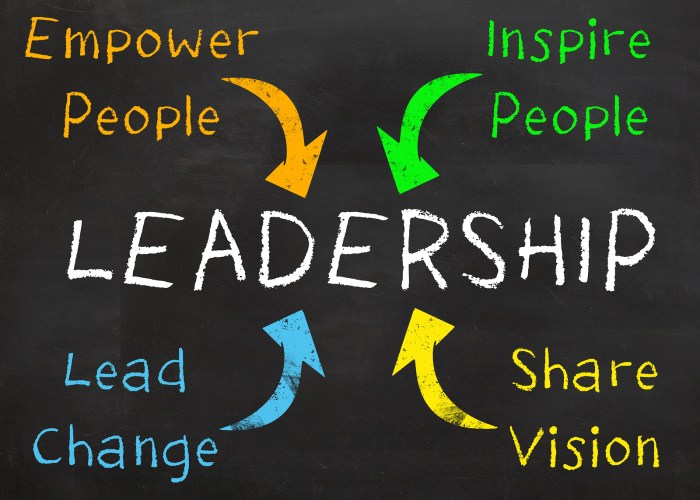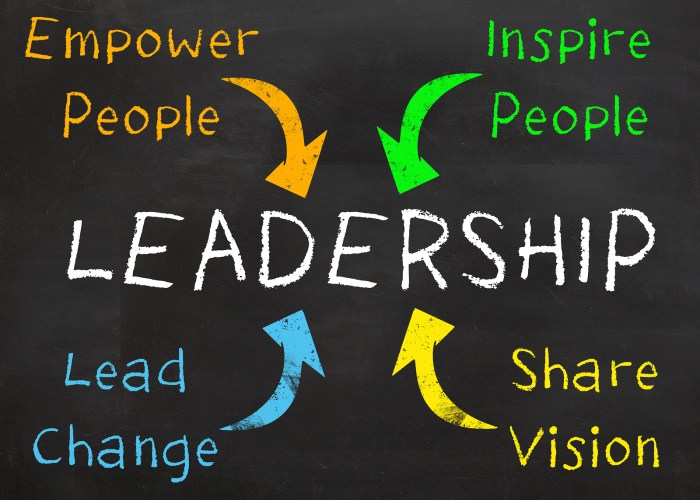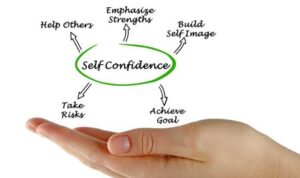Leadership Development is the key to unlocking organizational triumph, paving the way for enhanced employee performance and morale. Get ready to dive into the world of effective leadership strategies that drive success!
From identifying high-potential employees to overcoming challenges, this topic covers all aspects of nurturing strong leadership within a company.
Importance of Leadership Development

Leadership development is crucial for organizational success as it helps in cultivating strong and effective leaders who can guide the company towards its goals. By investing in leadership development programs, companies can ensure that they have a pipeline of talented individuals ready to step into key roles and drive innovation and growth.
Examples of Companies with Effective Leadership Development Programs
- Google: Google is known for its strong leadership development programs that focus on mentorship, coaching, and continuous learning. This has helped the company maintain its position as a leader in the tech industry.
- General Electric (GE): GE is another example of a company that has excelled due to its emphasis on leadership development. Their leadership programs have produced top executives who have gone on to lead successful divisions within the company.
Impact of Strong Leadership on Employee Morale and Productivity
Effective leadership has a direct impact on employee morale and productivity. When employees have strong leaders who provide clear direction, support their growth, and foster a positive work environment, they are more engaged and motivated to perform at their best. This leads to increased productivity, higher retention rates, and overall better performance for the organization.
Key Components of Leadership Development Programs
Leadership development programs play a crucial role in shaping future leaders and helping individuals reach their full potential. These programs typically include a variety of key components that are essential for fostering leadership skills.
Role of Mentorship and Coaching, Leadership Development
Mentorship and coaching are vital components of leadership development programs as they provide individuals with guidance, support, and valuable feedback. Mentors and coaches serve as role models, offering insights and advice based on their own experiences. They help individuals identify their strengths and weaknesses, set goals, and develop strategies for growth. Through regular interactions and feedback sessions, mentors and coaches help individuals enhance their leadership skills, build confidence, and navigate challenges effectively.
Importance of Feedback and Self-Assessment
Feedback and self-assessment are critical elements of leadership development programs as they facilitate continuous learning and improvement. Constructive feedback from mentors, coaches, peers, and superiors helps individuals identify areas for development and refine their leadership approach. Self-assessment allows individuals to reflect on their actions, behaviors, and decisions, enabling them to gain self-awareness and make necessary adjustments. By receiving feedback and engaging in self-assessment, individuals can enhance their leadership capabilities, build emotional intelligence, and drive personal and professional growth.
Strategies for Effective Leadership Development
Effective leadership development is crucial for the success of any organization. Here are some strategies to help identify and train future leaders:
Identifying High-Potential Employees
- Implement performance evaluations and assessments to identify employees with leadership potential.
- Observe employees in various situations to gauge their problem-solving skills, decision-making abilities, and communication style.
- Encourage self-nominations or peer recommendations for leadership development programs.
Approaches to Training Leaders
- Organize workshops and seminars focusing on leadership skills, communication, emotional intelligence, and conflict resolution.
- Provide opportunities for on-the-job training and mentorship programs with experienced leaders.
- Utilize online courses and virtual training sessions to reach a wider audience and offer flexible learning options.
Significance of Ongoing Learning
Continuous learning is essential for leadership development to adapt to changing environments and evolving business landscapes. Leaders must embrace ongoing education to stay relevant and lead effectively. This can include attending conferences, reading industry publications, and seeking feedback to improve their skills and knowledge.
Challenges in Leadership Development

Implementing leadership development programs can pose several challenges for organizations. Resistance to change, lack of resources, and conflicting priorities are some common obstacles faced in this process. Overcoming these challenges requires a strategic approach and a commitment to fostering a culture of leadership development within the organization.
Resistance to Change
Organizations often encounter resistance when introducing new leadership development initiatives. Employees may be comfortable with existing practices and reluctant to embrace change. To address this challenge, leaders should communicate the benefits of the program clearly and involve employees in the planning process. Creating a sense of ownership and demonstrating the positive impact of leadership development can help minimize resistance.
Lack of Resources
Another challenge in leadership development is the availability of resources. Developing and implementing effective programs require time, money, and expertise. Organizations may struggle to allocate sufficient resources to support leadership development efforts. To overcome this challenge, leaders should prioritize investment in leadership development, seek external partnerships or collaborations, and leverage technology to deliver cost-effective training solutions.
Organizational Culture
The organizational culture plays a crucial role in the success of leadership development initiatives. A culture that values continuous learning, growth, and development fosters an environment conducive to leadership development. However, if the organizational culture is resistant to change or lacks support for development initiatives, it can hinder the effectiveness of leadership programs. Leaders should work towards aligning the organizational culture with the goals of leadership development, promoting a mindset of learning and innovation across all levels of the organization.






